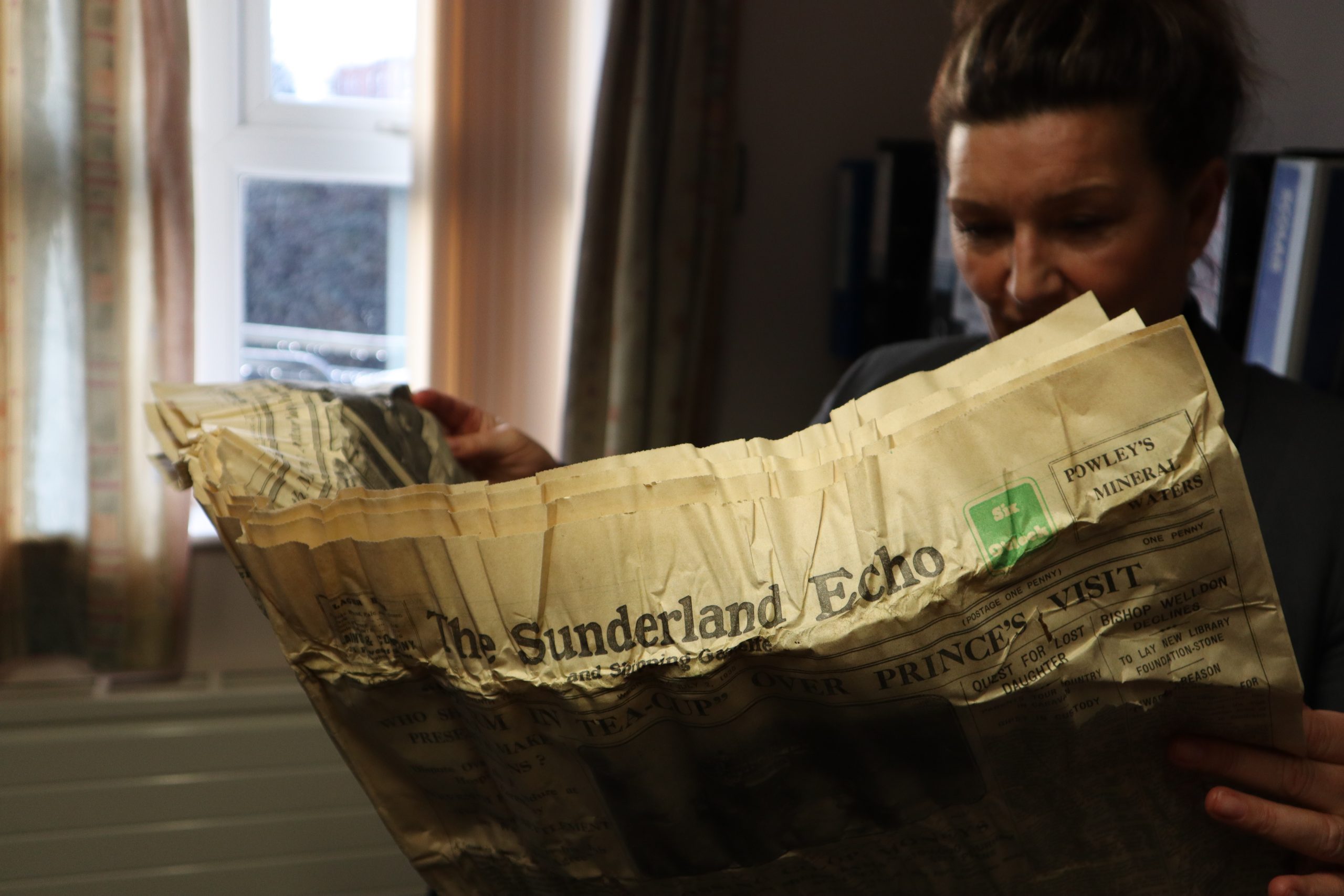
Builders working on the redevelopment of Monkwearmouth Hospital in Sunderland have unearthed a time capsule buried more than ninety years ago.
The capsule, a large glass jar sealed with wax, was found beneath the hospital’s foundation stone, which was laid by Edward VIII, who the Prince of Wales at the time and later became King.
The certificate found in the capsule is signed by those present when the foundation stone was laid by the Prince, including John Priestman, a local shipbuilder and charitable benefactor.
The contents of the jar are in excellent condition considering the passage of time and include a copy of the Sunderland Echo, dated 2 July 1930, along with a programme and certificate from the ceremony held for laying the foundation stone.
I was hoping to see some photographs or a letter from the people who buried it. I was slightly surprised that everything in the capsule was so formal and official.
Lynn BrandtSite manager, Monkwearmouth Hospital
Lynn Brandt, site manager at Monkwearmouth Hospital, said: “I was so excited to hear that a time capsule had been found on site. It’s been really interesting to see what someone living in the 1930s thought was important enough to bury for future generations to discover.
“I was hoping to see some photographs or a letter from the people who buried it. I was slightly surprised that everything in the capsule was so formal and official.
“We’re planning to bury a new capsule which will include more sentimental, personal touches, including a letter to the future and some photographs of our staff at Monkwearmouth.”

The copy of the Sunderland Echo found in the capsule describes the new hospital as a state-of-the-art facility, filled with modern equipment.
There is a feeling of history repeating itself as these statements also apply to the plans for the redevelopment of the current Monkwearmouth Hospital, which is part of Cumbria, Northumberland, Tyne and Wear NHS Foundation Trust (CNTW), a provider of mental health and disability services.
The hospital was originally used to treat trauma and orthopaedic patients but now provides a range of mental health and disability services, including an inpatient unit for older people with problems such as anxiety, depression and psychosis.
CNTW is redeveloping the hospital as the older buildings on the site were no longer fit for purpose and were not designed to provide mental health and disability services.
Priestman was instrumental in the building of the hospital and donated the equivalent millions of pounds in today’s money to causes and infrastructure in Sunderland. He officially opened the hospital in 1932.
A copy of the hospital’s annual report for 1929 and three coins were also found inside the capsule.
CNTW has been collaborating with staff at Tyne & Wear Archives to research the hospital’s history and make plans for both preserving and displaying the time capsule’s contents.
